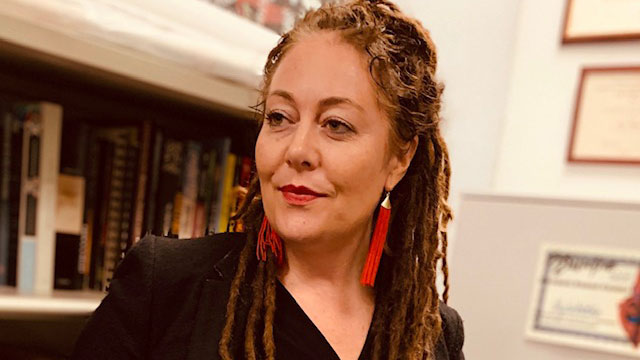 Vajra Watson, an expert in educational equity, is the new director of Sacramento State's Doctorate in Educational Leadership program. (Photo courtesy Vajra Watson)
Vajra Watson, an expert in educational equity, is the new director of Sacramento State's Doctorate in Educational Leadership program. (Photo courtesy Vajra Watson)By Jonathan Morales
Vajra Watson calls herself a “community-engaged scholar.”
Watson, a UC Berkeley and Harvard graduate who is the new director of Sacramento State’s Doctorate in Educational Leadership program, says it’s a matter of duty.
“The more degrees you have, the more knowledge you acquire, creates more responsibility to leave the world better than you inherited it,” she said.
Watson comes to Sacramento State at an opportune time. As the University has renewed its commitment to inclusivity and antiracism, she will bring her expertise in educational equity to a program that trains the region’s education leaders.
“I really see the doctoral program as a place to bring people together, to do movement building, to do more scholar-activism,” she said. “This program is not theoretical. This program is practical. It says we’re going out into the real world and we’re going to enact systemic change.”
A native of Berkeley, Watson earned her undergraduate degree at UC Berkeley and her master's and doctoral degrees at Harvard University. Her career in education began in the classroom at Berkeley High School, her alma mater, and most recently led her to UC Davis, where from 2008-2020 she was the director of research and policy for equity.
She also founded, in 2008, Sacramento Area Youth Speaks (SAYS), a social justice organization dedicated to elevating young people as the authors of their own lives and agents of change. Among numerous awards and honors, she received a Woman of the Year award from Congress in 2019, a Woman of Inspiration Award from the Sacramento Kings and an Early Career Award from UC Davis.
Watson said she was drawn to Sac State because of the diversity of the student body, the opportunity to have a larger impact across the state, and the University’s commitment to the community through its anchor university initiative.
“When you think about the number of teachers the California State University graduates across the system in a given year, if you want to change California schools, you really have to do it through the doorway of the CSU system,” she said. “While student achievement is teacher-driven, transforming school systems demands transformative leaders.”
The Ed.D. program graduates roughly 30 students per year who go on to become principals, superintendents, nonprofit founders and other educational leaders, many of them remaining in the Sacramento area.
The College of Education, where the Ed.D. program is housed, is known for its longstanding commitment to social justice and equity. Watson’s vision for the program includes deepening that commitment by exploring what antiracism really means, both for people of color and white people, and developing specific curriculum and strategies for antiracist education that graduates can take into their institutions and communities.
“In education we complain a lot about what doesn’t work, but our work is also to shine a light on the answers, on the pockets of hope, on places of possibility, and then use that to create bolder horizons and take a quantum leap in terms of reimagining our schools and our place in them.” Watson said.
Alexander Sidorkin, dean of the College of Education, praised Watson as someone whose work and expertise will elevate the entire program.
“The quality and reputation of a doctoral program largely depends on the achievements of its faculty,” he said. “We are very lucky to attract a distinguished scholar and teacher to serve as the next program director.”
In line with the anchor university initiative, Watson wants to show the region that “this is their Ed.D. program.”
“Part of anchoring ourselves to serving the community is for the community to feel and understand that Sac State belongs to them,” she said. “This is about radical hope and collective possibilities, and I just want people to feel invited into this movement and to this struggle.
“The struggle to transform education is real, but it’s also really beautiful.”
